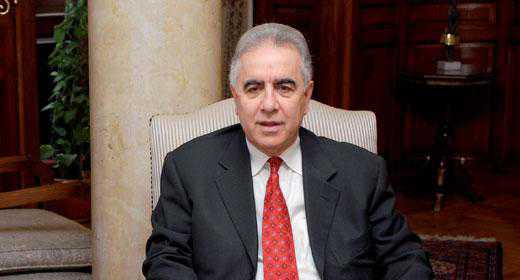
The Armenian Defense Ministry is considering sending two platoons of troops to southern Lebanon. Ministry officials are traveling to Rome this week to discuss the structure, deployment site, number of troops, and needed supplies with their Italian counterparts who are in charge of the United Nations Interim Force in Lebanon (UNIFIL).
This is a positive development since 2006 when Pres. Kocharian’s government refrained from joining dozens of countries that had agreed to take part in UN’s peacekeeping mission after Israel’s war with Lebanon. At that time, former Pres. Kocharian’s spokesman told Mediamax that the Armenian government refused to contribute troops because of UNIFIL’s unclear mandate and that any clashes involving Armenian soldiers could endanger the Armenian community in Lebanon. Pres. Kocharian staunchly defended his position on this matter during a private conversation I had with him in 2006.
The Turkish government, on the other hand, was quick to recognize the benefits of sending troops to Lebanon, as part of its effort to establish a military footprint, expand its political and economic influence in the Arab world, gather valuable intelligence, and counteract the Armenian influence in Lebanese affairs. Consequently, Turkish troops entered Lebanon for the first time since the collapse of the Ottoman Empire almost a century ago. Currently, UNIFIL consists of 11,000 troops from 37 countries, including 495 from Turkey. Armenia sent just one officer to southern Lebanon last year on an observer mission. Meanwhile over 130 Armenian soldiers have been serving in Afghanistan and 35 in Kosovo for several years, and until recently in Iraq.
The Armenian government did not fully explain last week as to why is it now interested in sending a peacekeeping force to Lebanon, after former Pres. Kocharian’s refusal to do so seven years ago. In my view, there are five good reasons why Armenia should contribute troops to UNIFIL:
1) The presence of Armenian soldiers on Lebanese soil would generate great pride among the large Armenian community in that country.
2) The Armenian contingent would serve to balance in a small way the pro-Turkish propaganda resulting from a much larger Turkish military deployment in southern Lebanon since 2006.
3) The Armenian troops would be the only ones from the South Caucasus, as neither Azerbaijan nor Georgia has contributed troops to Lebanon.
4) Even though there is an element of risk in sending troops to police southern Lebanon which borders Israel and Syria, this is a far less dangerous mission than Afghanistan where over 130 Armenian soldiers have been serving for a number of years.
5) As in Afghanistan, Iraq, and Kosovo, Armenian troops would gain valuable military experience by serving along with contingents from dozens of other countries.
The Armenian Defense Ministry also announced that it might send peacekeeping troops to Mali in Africa, where a series of bloody confrontations have been unfolding. In these clashes, Al-Qaeda-linked Islamist fighters have been battling Malian, French and African forces. A civil war is also raging between separatist Tuareg tribes and Malian troops. The situation is so precarious that U.N. Secretary-General Ban Ki-moon issued a report last week warning that peacekeeping troops may face grave risks in and around Mali.
Under such dangerous conditions, it would be unwise for Armenian troops to be dispatched to Mali. The responsibility for the security of Mali is primarily assumed by troops from African countries with logistical support from the French military. Armenia cannot afford to risk the lives of its soldiers unnecessarily, keeping in mind its own security priorities at home due to the Karabagh (Artsakh) conflict.
Having a limited number of Armenian troops serving in less dangerous locations may be a good idea in order to gain military training and diplomatic visibility, but dispatching large numbers of soldiers to multiple theaters of conflict and placing them in perilous situations would be most imprudent, given the small size of the Armenian military.
Although Armenia’s participation in UNIFIL is subject to parliamentary approval, little opposition is expected in view of the ruling party’s overwhelming majority. The Armenian government should seek the Parliament’s consent to dispatch peacekeeping troops to southern Lebanon only. There are many sensible reasons for stationing Armenian units in Lebanon, but not in Mali!

